Introduction
Land development consulting stands at the intersection of expertise and strategic planning, guiding organizations through the intricate landscape of land acquisition and project development. This multifaceted field encompasses a range of critical activities, from site selection to regulatory compliance, ensuring that projects not only meet legal requirements but also align with stakeholder interests. As the energy and infrastructure sectors face increasing complexities, the role of consultants becomes paramount in navigating these challenges and facilitating successful project outcomes.
With a keen focus on leveraging advanced technologies and sustainable practices, land development consultants are poised to shape the future of development while addressing the unique demands of each project.
Defining Land Development Consulting: An Overview
Land development consulting in real estate involves offering expert advice and assistance to organizations in the energy and infrastructure sectors as they manage the intricacies of property acquisition and initiative execution. Land development consulting encompasses various activities, including:
- Site selection
- Right-of-way acquisition
- Title research
- Compliance with legal and regulatory requirements
Consultants in this domain play a pivotal role in ensuring that projects are executed efficiently and effectively, addressing unique challenges posed by each project and stakeholder involved.
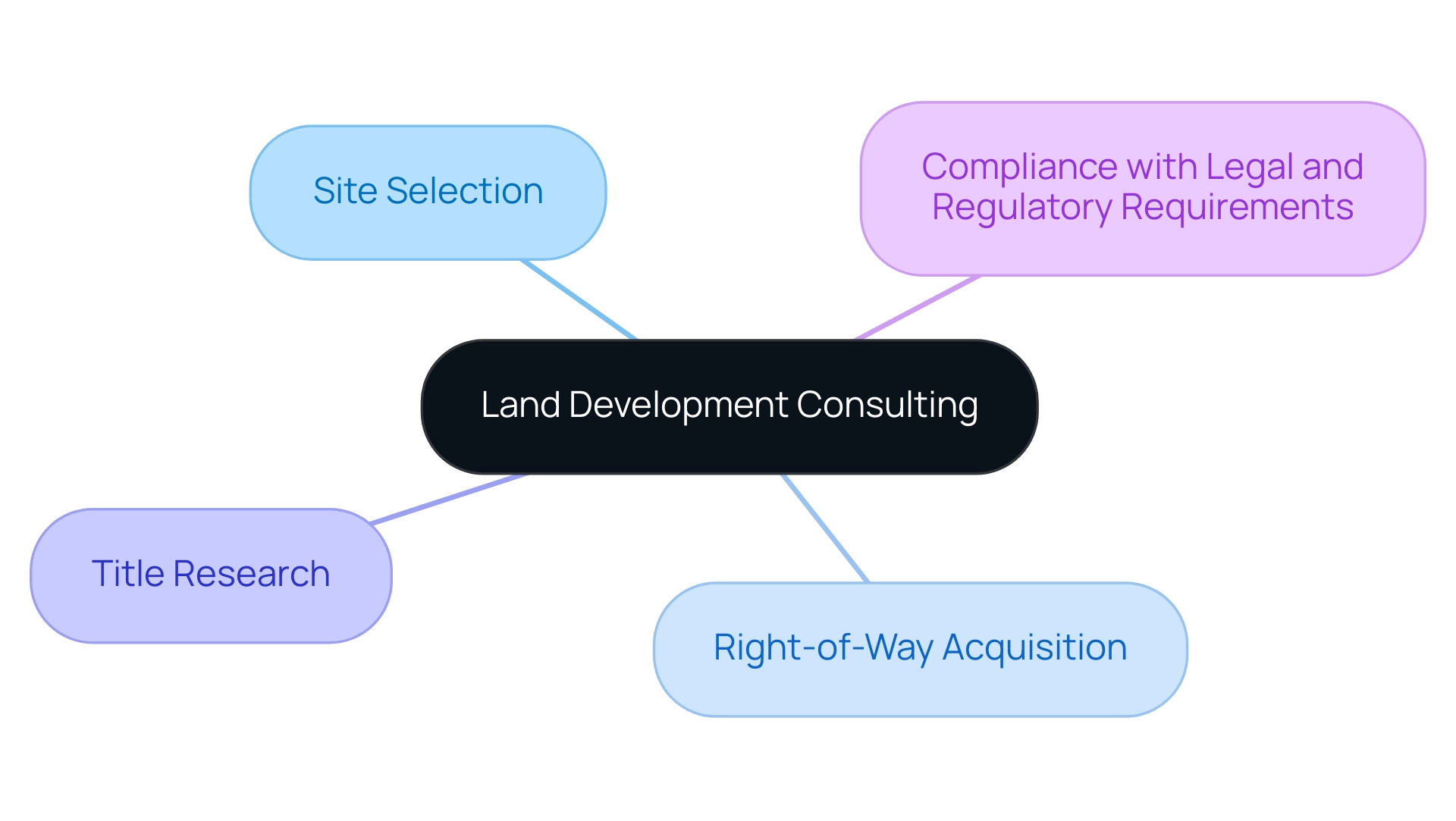
Key Services and Expertise in Land Development Consulting
Essential services offered by property planning experts encompass:
- Site and right-of-way acquisition, where specialists identify appropriate areas and negotiate conditions with property owners.
- Title research, ensuring that all legal aspects of property ownership are clear and that there are no encumbrances that could impede development.
- GIS mapping to analyze land use patterns and assess environmental impacts, facilitating informed decision-making.
The integration of advanced technologies, such as AI-powered title research software, allows professionals to enhance efficiency and accuracy in their work, ultimately benefiting their clients. By utilizing their knowledge, land development consulting experts can effectively handle stakeholder negotiations, navigate intricate regulatory frameworks, and offer strategic insights that contribute to the successful execution of energy and infrastructure initiatives.
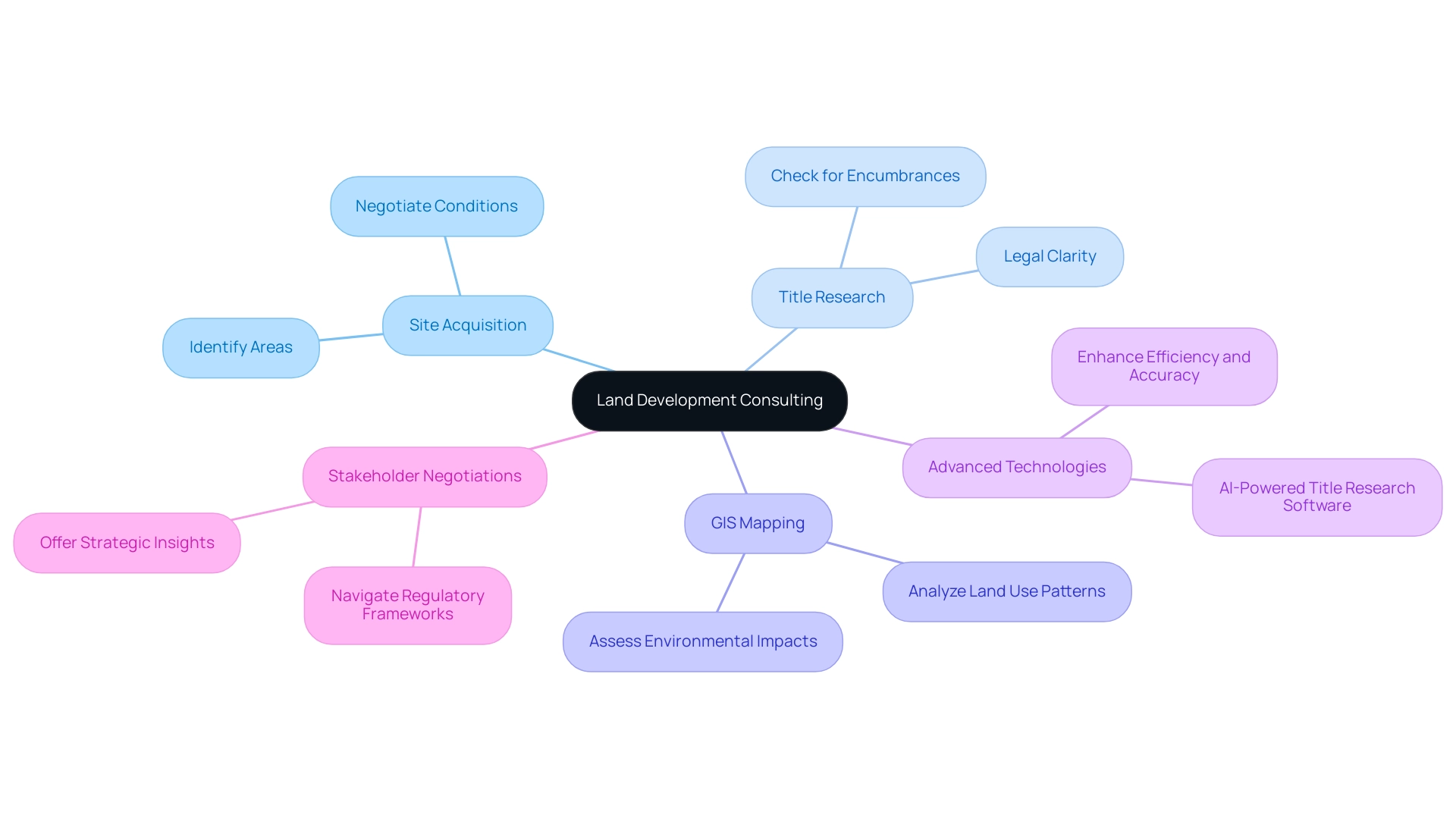
The Importance of Regulatory Compliance in Land Development
Regulatory compliance is a cornerstone of development consulting, as it ensures that all initiatives adhere to local, state, and federal laws. Consultants must navigate a complex web of regulations that may include:
- Zoning laws
- Environmental protections
- Usage policies
Non-compliance can result in expensive delays, fines, and even cancellations.
Thus, land development consulting professionals play an essential role in ensuring that all required permits are acquired and that initiatives align with regulatory frameworks. Their expertise in this area not only mitigates risks but also fosters positive relationships with regulatory agencies, which can facilitate smoother execution.
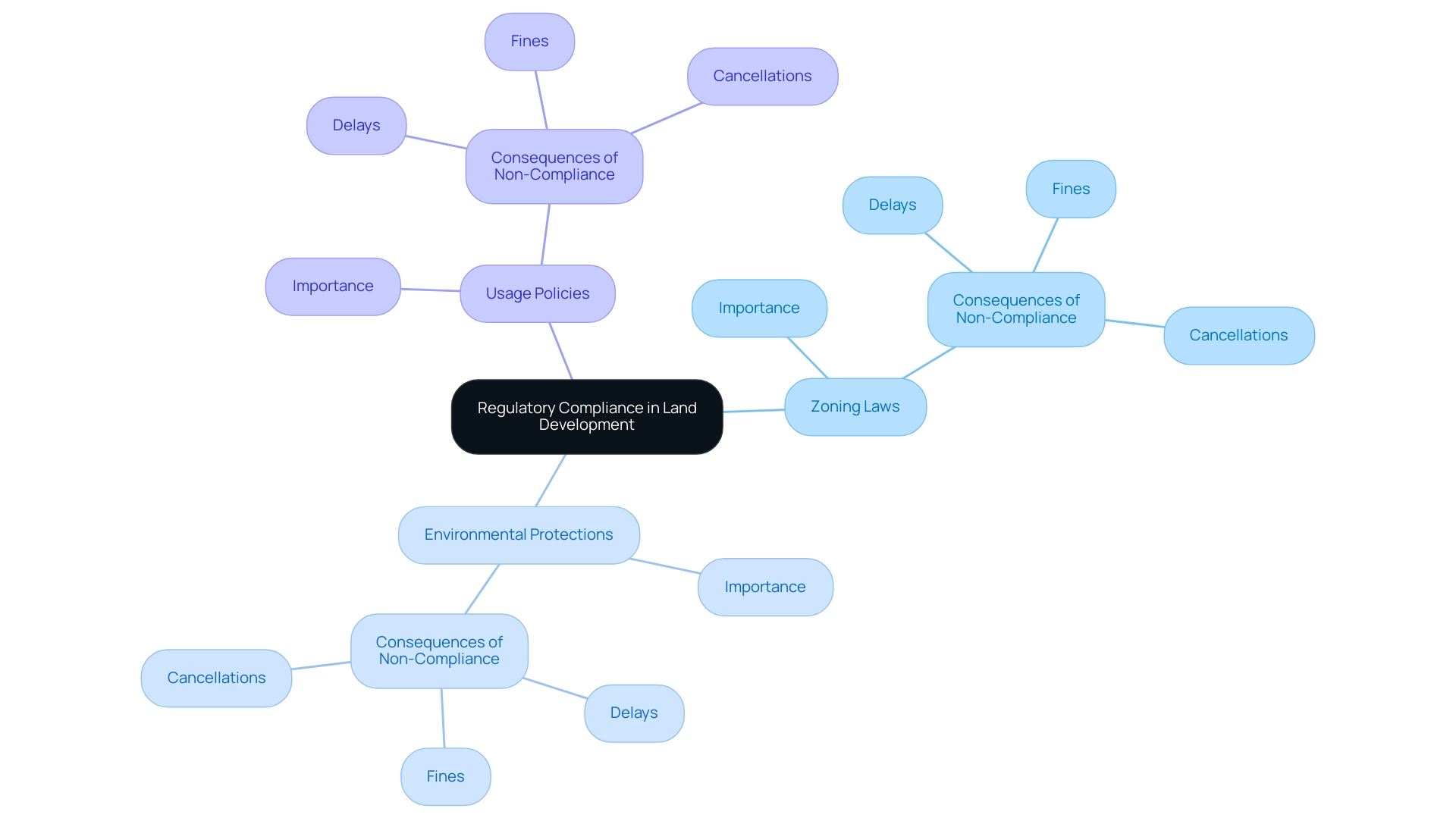
Challenges Faced in Land Development Consulting
Land development consulting is fraught with challenges that require adept problem-solving skills and strategic thinking. Common obstacles in land development consulting include:
- Finding suitable land that meets development requirements
- Managing conflicting interests among stakeholders
- Addressing environmental concerns that may arise during the development process
Moreover, advisors must frequently handle unforeseen setbacks caused by regulatory obstacles or alterations in scope.
By leveraging their experience and expertise, advisors can devise creative solutions to overcome these challenges, ensuring that projects remain on track and within budget.
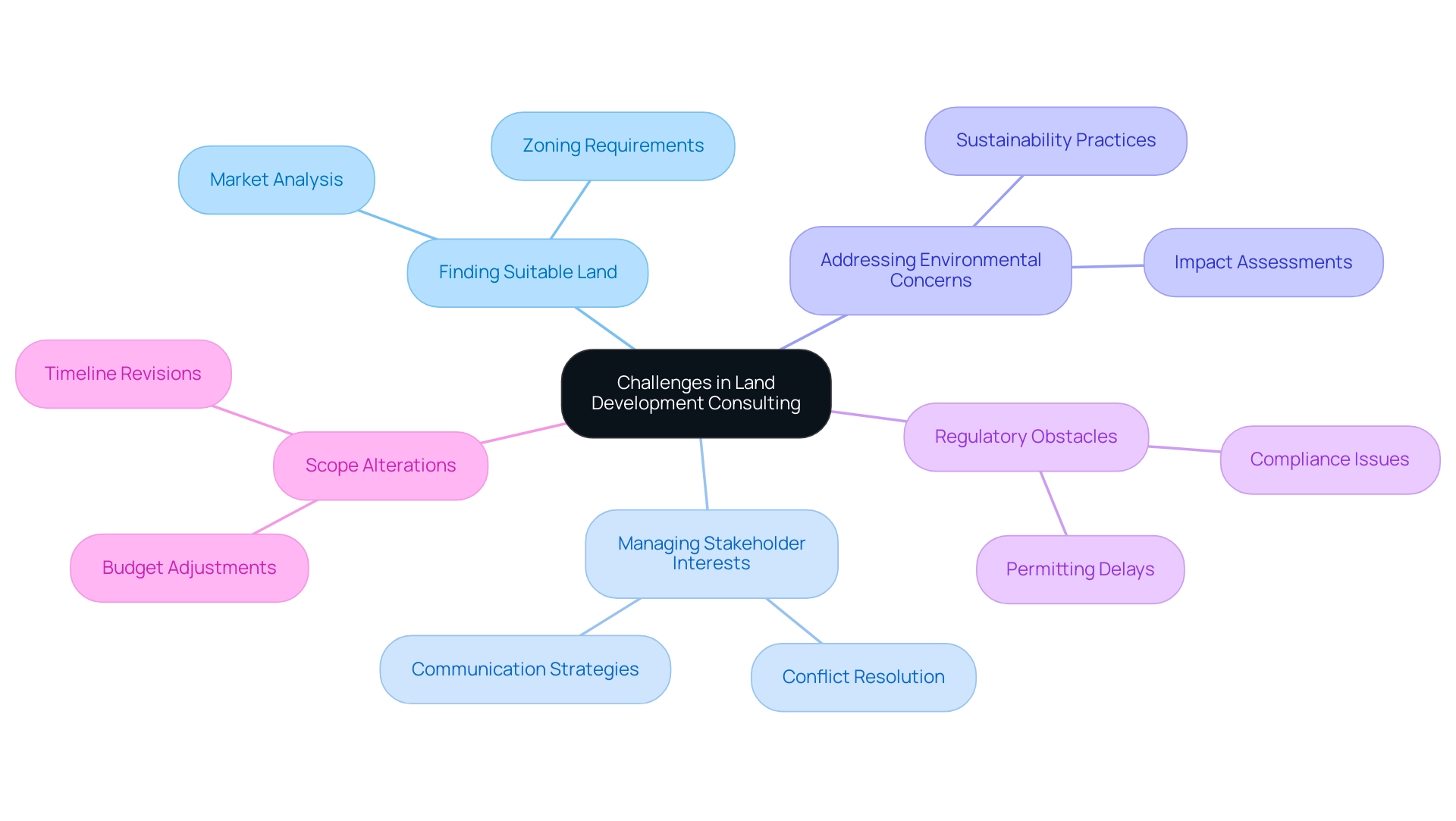
The Future of Land Development Consulting
The future of property consulting is set for transformation, propelled by advancements in technology and an increasing focus on sustainability. Innovations such as AI and machine learning are improving data processing abilities, allowing experts to examine usage patterns and environmental effects more precisely. Moreover, the growing emphasis on sustainable practices is encouraging advisors to incorporate environmental factors into their planning procedures.
As regulations evolve and stakeholder expectations shift, land development consulting professionals will need to adapt their strategies to remain competitive in a dynamic market. Embracing these changes will be essential for consultants to continue providing valuable insights and effective solutions for their clients in the energy and infrastructure sectors.
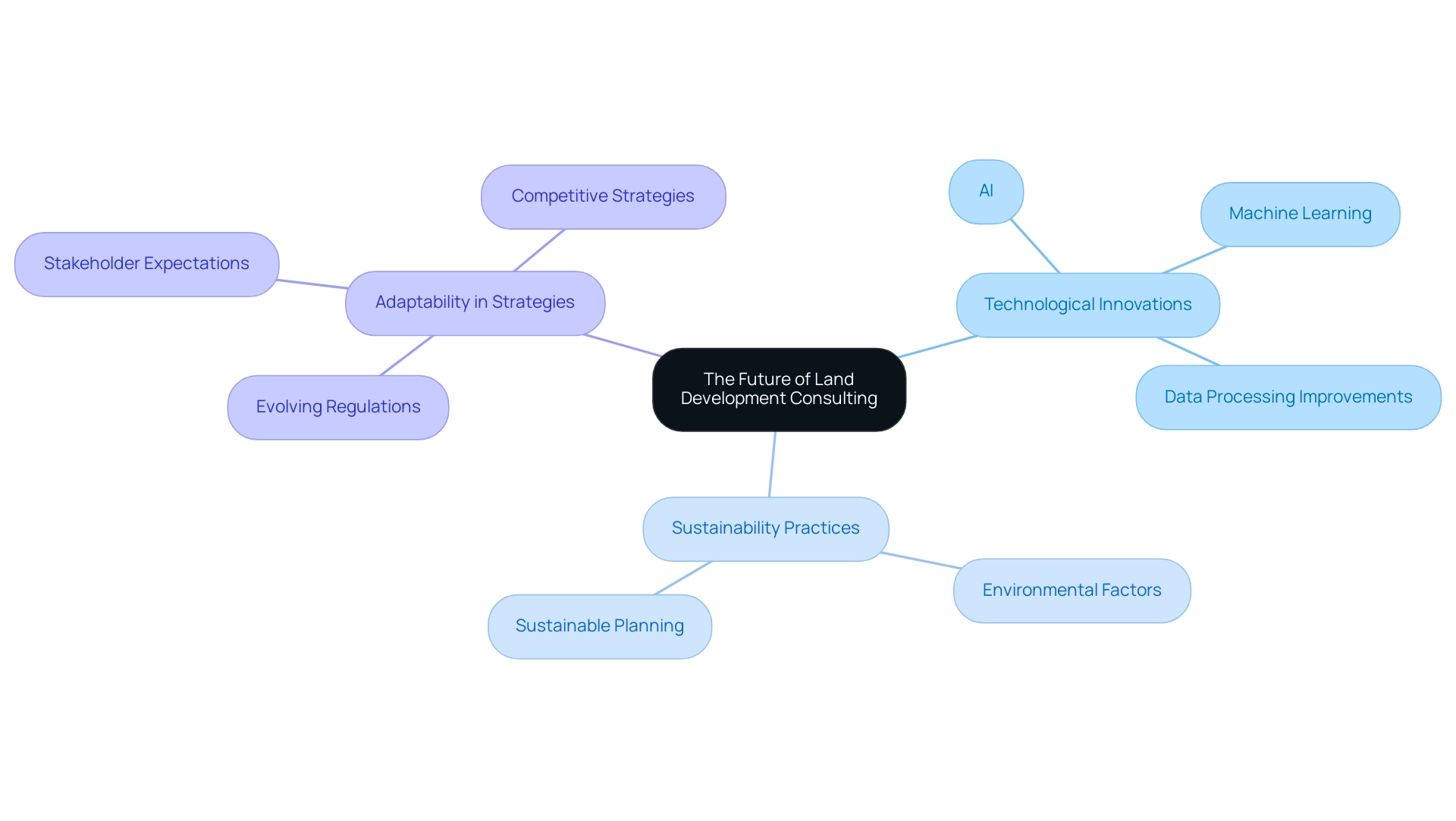
Conclusion
Land development consulting is essential in navigating the complexities of land acquisition and project development, particularly within the energy and infrastructure sectors. The multifaceted nature of this field encompasses critical activities such as site selection, regulatory compliance, and stakeholder management. By leveraging advanced technologies and strategic insights, consultants ensure that projects are executed efficiently while adhering to legal requirements and addressing the unique challenges posed by each development.
The importance of regulatory compliance cannot be overstated, as it serves as the foundation for successful project execution. Consultants are tasked with navigating intricate regulatory frameworks to secure necessary permits and foster positive relationships with regulatory agencies. This expertise not only mitigates risks but also enhances the likelihood of timely project completion, ultimately benefiting all stakeholders involved.
As the landscape of land development continues to evolve, the future of consulting in this domain is bright. The integration of innovative technologies and a heightened focus on sustainability will drive transformative changes in how projects are planned and executed. By embracing these advancements, land development consultants will be well-equipped to meet the demands of a dynamic market, ensuring they remain invaluable partners in delivering successful energy and infrastructure projects.




